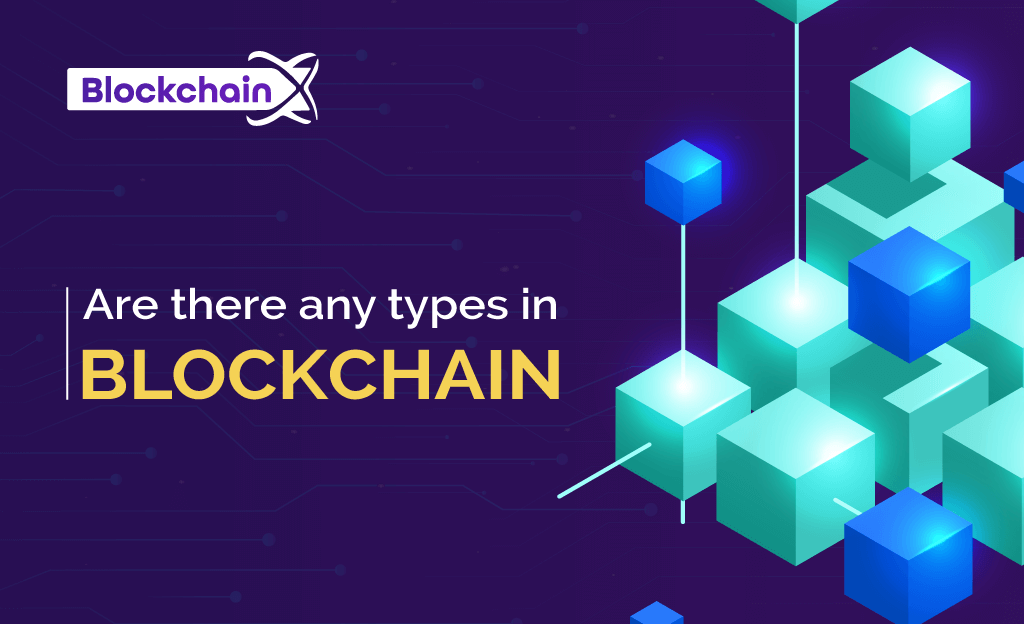
4 Types of Blockchain You Should Know About
Blockchain has caused quite a buzz in the technological world. Although its first-ever application — Bitcoin — came to existence in 2009, it didn’t skyrocket to fame until late 2017 when its value increased from mere 1000s to almost $20000 per Bitcoin. The rollercoaster ride of bitcoin, in turn, shone brightly upon its architecture — Blockchain. The technology was widely studied and adopted worldwide that almost everyone knows what Blockchain means and where it can be applied to improve the industries. But there is a catch. The definition of Blockchain differs according to the type of Blockchain we are discussing. So we have put together all the types of Blockchain in the blog for your perusal.
What is Blockchain?
Blockchain is a distributed, decentralized, and immutable data structure for data storage. It is a chain of blocks, where every block comprises a collection of data. The technology is made up of a network of computational devices with which data can enter the blockchain to be stored as blocks. But not every device can generate a block. The algorithm generates a puzzle, and whichever device solves the puzzle first will get the rights to generate a block after its proof of work is verified by more than 50 percent of the devices connected to the network.
Public Blockchain
Public Blockchain is the typical blockchain definition we see widely on the internet. As the name suggests, it is open to everyone. Any machine can sign in and become a part of the Blockchain network with ease. And any machine connected to the network can view the data (usually transactions), history of storage, and IDs involved in the stored data. But that’s alright because there is no way to identify the person behind an ID unless the user reveals it himself. Bitcoin and Ethereum are some of the famous cryptocurrencies using public Blockchain.
Private Blockchain
Not everyone can connect to a Private Blockchain as it is comprised of a closed network and restricts the public from connecting to it. Only the administrator of the Blockchain can allow devices to become a part of the private Blockchain. The administrator can further control the accessibility, authorizations, and permissions of the members of the network. Private Blockchain is handy when companies want to leverage the advantages of Blockchain to reduce transaction costs and to protect their data integrity but with control over the transparency.
Hybrid Blockchain
Hybrid Blockchain is a combination of public and private Blockchain. It makes use of the both the algortithms to increase the security of the network. In hybrid Blockchain, the data stored can either allowed to be seen by all the machines in the network, or it can also be shielded from the view of the public. That is, you can control who sees the data and who don’t. For example, a real estate company can allow its customers to see the details of their respective projects, but not the other projects of the company.
Federated Blockchain
Consortium or Federated Blockchain is a semi-decentralized Blockchain network managed by selected organizations. Unlike private Blockchain where the network comprises nodes of one organization, consortium Blockchain is managed by multiple organizations. Consortium Blockchain is the ideal for the use of banks and government organizations where they can store and share confidential information.
Wrapping Up
Blockchain is still a developing technology. There is more room for innovation, and more types of Blockchain networks can surface in no time. What we have jotted above is, at present, mostly used types Blockchain and experimented on. If you want to build a Blockchain networks, or exchanges, or wallets, or DApps, or ICOs/STOs, or even custom Blockchain solutions, we can build it for you. Before that, we recommend you to analyze your options and arrive at the optimal solution for your business. You can also get in touch with our consultation wing to clarify the queries.





